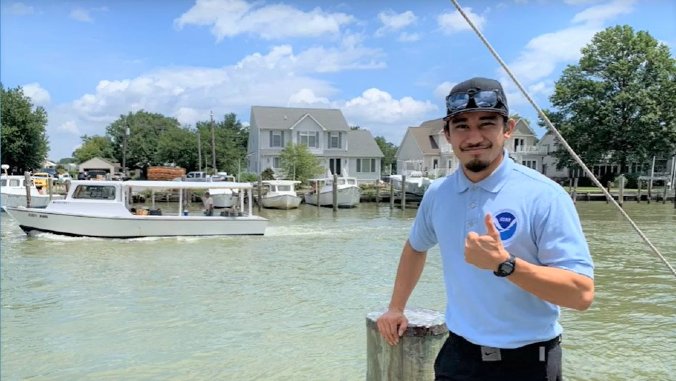
The University of Hawaiʻi at Hilo and UH community colleges statewide co-hosted the 2020 Island of Opportunity Alliance (IOA) conference, a virtual symposium for students from Hawaiʻi and the Pacific region to present scientific research and projects. Students from American Sāmoa and the Marshall Islands were among some of the participants. The conference also featured students from UH Hilo, UH Mānoa, Kapiʻolani Community College and UH Maui College.
The IOA is a federally-funded network of higher education institutions from Hawaiʻi and 10 other alliance partners located throughout the U.S.-affiliated Pacific with a mission to expand access to careers in science, technology, engineering and math (STEM) fields for underrepresented populations.
UH Hilo serves as the administrative hub of the group, which includes 10 other partner institutions in American Sāmoa, Guam, Hawaiʻi, Palau, the Federated States of Micronesia, the Marshall Islands and the Northern Mariana Islands. UH community colleges located on Kauaʻi, Oʻahu and Maui co-hosted the event through a federal program also meant to boost minority students in STEM, specifically to prepare them for transferring into four-year degree programs.
The conference was originally scheduled to take place in Hilo on August 6–7. But the global spread of COVID-19 has profoundly impacted the alliance and peers, so organizers opted to go virtual.
“Most, if not all, of our IOA institutions have been forced to migrate courses to online platforms, and many of our program activities have been reduced if not suspended altogether until normal operations can resume,” noted Mārata Tamaira, IOA Louis Stokes Alliances for Minority Participation (LSAMP) program manager. “These have indeed been uncertain and challenging times.”
Collaboration and support
Since its inception in 2006, IOA has developed as a network of higher education institutions in the Pacific region within the LSAMP program. It was launched by the National Science Foundation in 1991 with a mission to assist universities and colleges in diversifying the nation’s STEM workforce by increasing the number of STEM baccalaureate and graduate degrees awarded to populations historically underrepresented: African Americans, Hispanic Americans, American Indians, Alaska Natives, Native Hawaiians and Native Pacific Islanders. The program is particularly aimed at encouraging students from two-year programs to continue their education at four-year institutions.
In 2017, UH received $1.4 million through the Bridge to the Baccalaureate Alliance: Strategic Transfer Alliance for Minority Participation (B2B-STAMP) program to help minority students studying STEM at UH’s seven community colleges to accelerate their transition to four-year degree programs. The funding also helped support the 2020 virtual conference.
For more go to UH Hilo Stories.
—By Susan Enright

